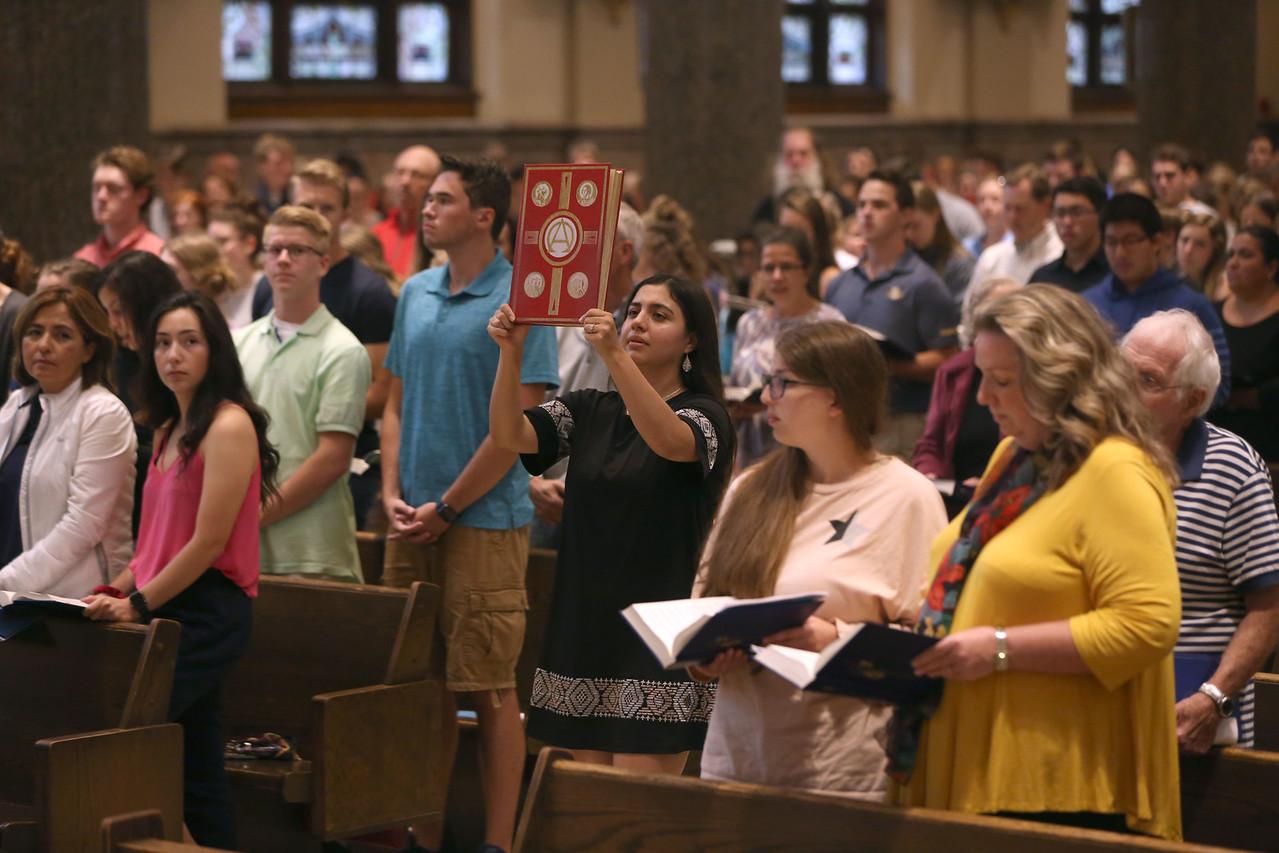Lent is like a pre-Easter retreat in which we do special things that keep us focused and prepare us to walk with Jesus through his passion, death, and resurrection. Christians traditionally observe Lent with prayer, fasting, and almsgiving. These disciplines are in no way meant to be an indulgence in masochism or self-punishment or self-improvement. They are meant to lead us back to the grace we received in Baptism.
Prayer
How can I pray more? Try taking more time for quiet. Stop in at the Chapel of the Holy Family, or the Eucharistic Chapel in the AMU, or St. Joan of Arc to be quiet with the Lord. Do some "spiritual reading." The Memorial Library has a good selection of books on the lives of the saints, prayer styles, and reflection. Campus Ministry also has a small lending library. Just stop in AMU 236 and ask at the front desk if you can see the selection and check out a book or two.
Fasting
Why should I fast? Fasting is a discipline Christians use - just as Jesus did - to lead us back to the fervor of our baptism when we put on Christ and vowed to follow Him. Our fasting reminds us to be more Christ-like in our everyday lives. “By denying ourselves food at certain times, we recall the reality of hunger, the needs of the poor, and our citizenship in the heavenly kingdom by moving ourselves away from an unhealthy focus on material goods and their consumption and intentionally changing our body’s focus.” (Blaha, Lenten Disciplines)
What are the Church Laws on fasting and abstinence during Lent?
- Catholics who have celebrated their 14th birthday are bound to abstain from meat on Ash Wednesday and each Friday of Lent.
- Catholics who have celebrated their 18th birthday, in addition to abstaining from meat, should fast (i.e., eat only one full meal on Ash Wednesday and Good Friday). Smaller quantities of food may be taken at two other meals but no other food should be consumed at other times during those two days. Catholics should not lightly excuse themselves from these prescribed minimal penitential practices.
Almsgiving
Why should I give alms? Almsgiving helps us to focus on someone else's needs instead of our own. Lent is not a personal spiritual workout; it is a communal experience of renewal and a recommitment to our Catholic beliefs and mission.
“Giving “alms” is more than simply giving money; it is a matter of heart-felt concern for those in genuine need. The Bible speaks of almsgiving as a God-given duty, which must be carried out freely and joyfully, but also with a sense of responsibility. We need to distinguish the truly poor from the various forms of begging which do not help them. Jesus himself encourages a quiet and sincere concern for others who need our help, but warns against acts of charity performed to gain the approval of others. In our efforts to be merciful, let us take to heart his words: “It is more blessed to give than to receive” (Acts 20:35).” Pope Francis on Mercy and Almsgiving at Jubilee Audience, 2016.
